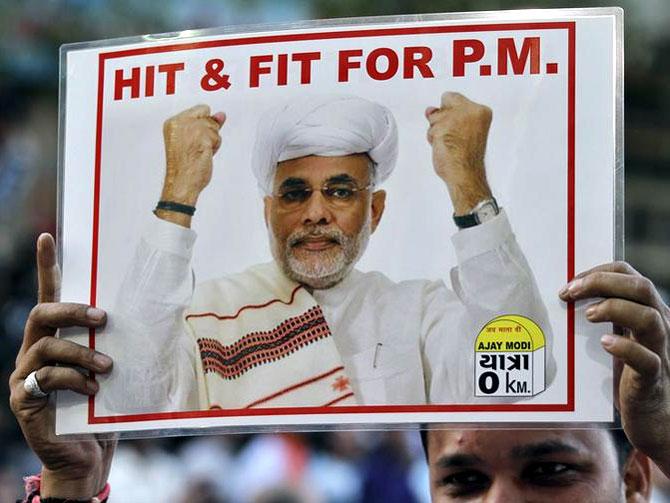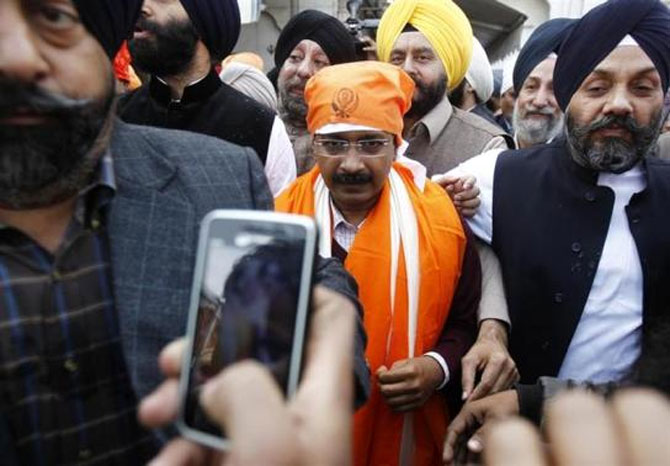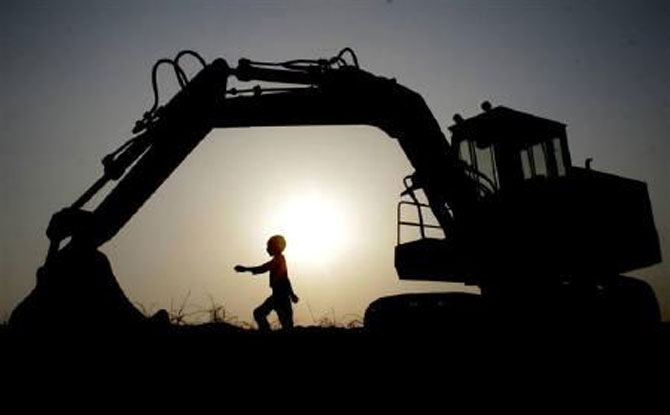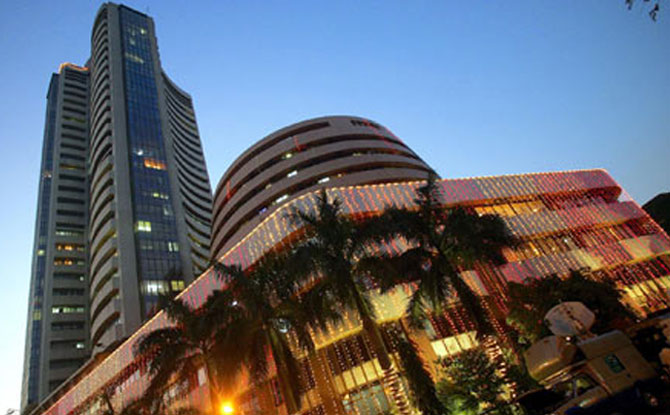 | « Back to article | Print this article |
Indian CEOs root for Modi as next PM
India Inc has made its choice for the next prime minister loud and clear: the Bharatiya Janata Party’s candidate Narendra Modi is the overwhelming favourite, with a whopping 77 per cent of the 25 corporate leaders surveyed in a Business Standard poll opting for him.
But most are keeping their fingers crossed because of the Aam Admi Party (AAP), which might play a party-pooper for Modi. Forty-five per cent of the chief executives said they saw the possibility of Arvind Kejriwal making it difficult for BJP to form the next government. That’s the reason why half of the polled CEOs said BJP, along with its allies, would fall short of a majority.
But most are hoping against hope Modi will eventually breast the tape and are ruling out mid-term elections. Fifty-six per cent of the CEOs felt Modi’s handling of Gujarat riots would not be an election issue.
Click on NEXT for more...
Indian CEOs root for Modi as next PM
Though Kejriwal has won few admirers, the nationwide dipstick CEO poll conducted across industries last week showed AAP clearly had become a talking point. “We need a party like AAP to play a part in politics but they need to evolve. I have high regard for Kejriwal because he stands for a new type of politician but he is being perceived as a bit of an anarchist and a bull in a China shop. The idea is very good but the methodology needs to be more matured,” says Kiran Mazumdar-Shaw, chairperson & managing director of Bangalore-based Biocon.
Corporate India’s frustration with Prime Minister Manmohan Singh can be gauged from the fact that 73 per cent of respondents feel his performance has been just about average and he has failed miserably in controlling corruption within his party. About 27 per cent term Singh’s tenure as a disaster.
“From a policy point of view, there should have been some efforts to develop corridors, mines, infrastructure, water management. That did not happen and few long-term actions were taken,” says Ankit Miglani, managing director of Uttam Galva Steels.
“It’s not only local companies that are unhappy with the way India is going, even multinationals are tired of the country and its tax laws,” said an independent director and a senior lawyer with one of the big-four audit firms.
Click on NEXT for more...
Indian CEOs root for Modi as next PM
Asked what should be priorities for the next government, almost 46 per cent said revival of stalled projects worth $25 billion should be top on the list. That, according to them, was more important than controlling price rise.
“The government should focus on kickstarting the economy. Today, doing business is becoming increasingly difficult. The moment India addresses that one issue, we will see a jump in investments. Today, we have made it an approval raj, based on very ambiguous and cumbersome regulations. Just address regulatory reforms... that will kickstart the economy in a big way,” says Mazumdar-Shaw.
Asked whether the Indian political parties had focused enough on economic agenda in the forthcoming general elections, 61 per cent replied in the negative.
Click on NEXT for more...
Indian CEOs root for Modi as next PM
Finally, on the pre-poll rally in the stock markets, 54 per cent of the CEOs felt the Sensex would remain below 24,000 before the election results are announced on May 16. On Friday, the Sensex had closed at 21,809, up seven per cent in the past month.
“The Sensex might cross 24,000 if the foreign institutional investments keep flowing into the market,” said Videocon Group Chairman Venugopal Dhoot.




